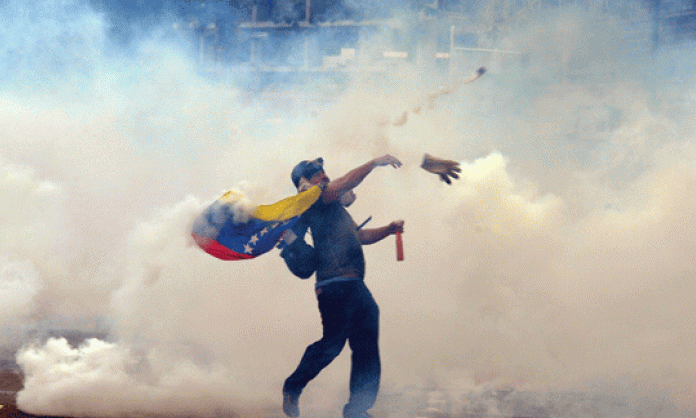The recent discussion of Venezuela in Red Flag has been useful. The discussion of revolution in Latin America remains guarded and often dehistoricised, especially as the impact of the Cuban revolution has faded among newer generations.
In his recent response to Sam King’s contribution (Red Flag 19), Mick Armstrong (Red Flag 20) correctly points out that “if the revolution does not push forward it will eventually be defeated”.
Only a few weeks ago, Captain Jose Guillen Araque of the Venezuelan National Guard was killed by ring wing opposition forces. Guillen had recently given President Maduro a book on Nazism, warning of the impending danger.
For more than a decade, Venezuela has lived an extended period of revolutionary possibility. The ruling and middle classes have remained confused and weakened through internal struggle; “the lower classes [did] not want to live in the old way and the upper classes [could not] carry on in the old way” – Lenin’s assessment, in Left wing communism, of the prerequisite of a revolution. The armed forces of the bourgeois state have been severely compromised and in an advanced stage of revolt.
Following the 2002 coup, the mood among an increasing number of workers began to shift “in favour of supporting [more] determined” and even “unreservedly bold revolutionary action against the bourgeoisie” (Lenin again). The Chavez government responded with measures further encroaching on the political power of the ruling class: empowering grassroots class organisations and deepening the radicalisation process inside the military’s ranks.
As with all revolutions, the Bolivarian has defended itself against sustained attack. On one hand, attacks have come from the ruling classes of the world, and the US in particular. On the other, they have come from the increasingly desperate and rabid Venezuelan bourgeoisie. The latter are supported sometimes overtly and otherwise more subtly by the ruling classes of South America, which have grown more and more anxious.
The revolution has proved particularly adroit, capable both of building something of an (anti-imperialist) alliance against US capital in the Americas and placing some important restrictions on the political power of the Venezuelan bourgeoisie.
Nevertheless the revolution has been buying time, as all revolutions at some stage need to. It has been restricted by the stalled advance of anti-capitalist movements in the rest of the continent (and elsewhere).
Most importantly, perhaps, the revolution’s tactical scope has also been restricted by the weaknesses of its leadership. The importance of and critical role played by Chavez underscored the lack of a collective cadre with the homogeneity and mass authority to carry through some of the bolder measures.
The Bolivarian revolution now stands on a precipice. The Venezuelan bourgeois, sensing weakness – evident most recently in the unexpectedly low presidential vote for the Chavez forces following his death – is regrouping and managing to incite middle class and de-classed elements against the workers.
There are no simple decisions Venezuela’s revolutionaries can make.
Will the working classes pay the heaviest of prices for what was not previously achieved; for the continuing inability of the revolution to develop the leadership it needs? Or will the mass of workers push forward, under the threat of counter-revolution, and insist of their leaders, as they did during the 2002 coup, decisiveness – and confidence in the self-organised power of workers and their allies that is needed to open a new stage in the Bolivarian revolution.
As Miguel Enriquez of the Chilean Movement of the Revolutionary Left said two months before the Pinochet coup:
El pueblo debe prepararse para resistir (The masses have to prepare to resist),
Debe prepararse para luchar (They have to prepare to struggle),
Debe prepararse para vencer (They have to prepare to win).
Trabajadores (Workers) ...
¡Adelante con todas las fuerzas! (Forward with all your strength!)
¡Adelante con todas las fuerzas de la historia! (Forward with the full force of history!)




